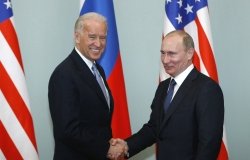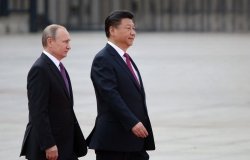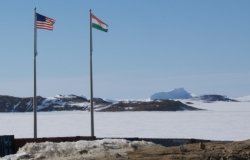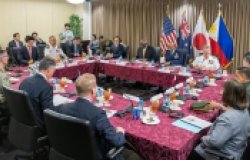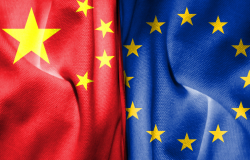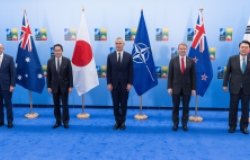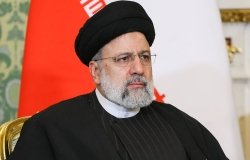Smart Take | Xi Jinping Wraps Up Visits to France, Hungary, and Serbia: What Did He Accomplish?
Chinese leader Xi Jinping just concluded a 3-nation visit, which marks his first trip to Europe in five years. Robert Daly, Director of the Wilson Center’s Kissinger Institute on China and the United States, provides an overview of the agenda and discusses key takeaways. He addresses Xi’s strategic goals and President Macron’s concerns about trade and China’s support of Russia. Daly also explains why Hungary and Serbia remain two of China’s closest friends in Europe.
Video Transcript
Xi Jinping Wraps Up Visits to France, Hungary, and Serbia: What Did He Accomplish?
This transcript has been lightly edited for clarity.
Xi Jinping probably regards his trip to Europe as a success. He went to France, where he met with Emmanuel Macron and also to Hungary and Serbia, two countries that are very friendly to China in defiance of trends throughout Europe. Xi Jinping believes that Macron's call for strategic autonomy for Europe work to his advantage and against the United States.
I think that is a fundamental misread.
He doesn't understand that Macron is actually calling for Europe to be the champion of liberal democracy. He met with Macron. And Macron was very concerned, as are other European leaders, about China's support for Russia. Xi Jinping's position is one, denying, that he does support Russia. He claims neutrality, all the while doubling down on friendship with Russia. Indeed, Vladimir Putin will be visiting China very soon. So I think that Europe got no encouragement there.
And Macron's other major concern is China's export of its overcapacity. It's flooding European markets with electronic vehicles, solar cells. And here again, no concessions on either side. Xi Jinping denies that China is overproducing, denies that it is flooding foreign markets, and claims that this is all a fabrication of the United States. China had been trying to split the European countries that had formerly been part of the Soviet Union from Western Europe through a program that it called the 17 plus 1. 17, were the 17 Central and Eastern European states, plus Greece. The one was China.
Guest

Robert Daly
Robert Daly, the Director of the Wilson Center’s Kissinger Institute on China and the United States, has compiled an unusually diverse portfolio of high-level work: He has served as a US diplomat in Beijing; as an interpreter for Chinese and US leaders, including President Carter and Secretary of State Kissinger; as head of China programs at Johns Hopkins, Syracuse, and the University of Maryland; and as a producer of Chinese-language versions of Sesame Street. Recognized East and West as a leading authority on Sino-US relations, he has testified before Congress, lectured widely in both countries, and regularly offers analysis for top media outlets.
Read MoreHosted By

Kissinger Institute on China and the United States
The Kissinger Institute works to ensure that China policy serves American long-term interests and is founded in understanding of historical and cultural factors in bilateral relations and in accurate assessment of the aspirations of China’s government and people. Read more
